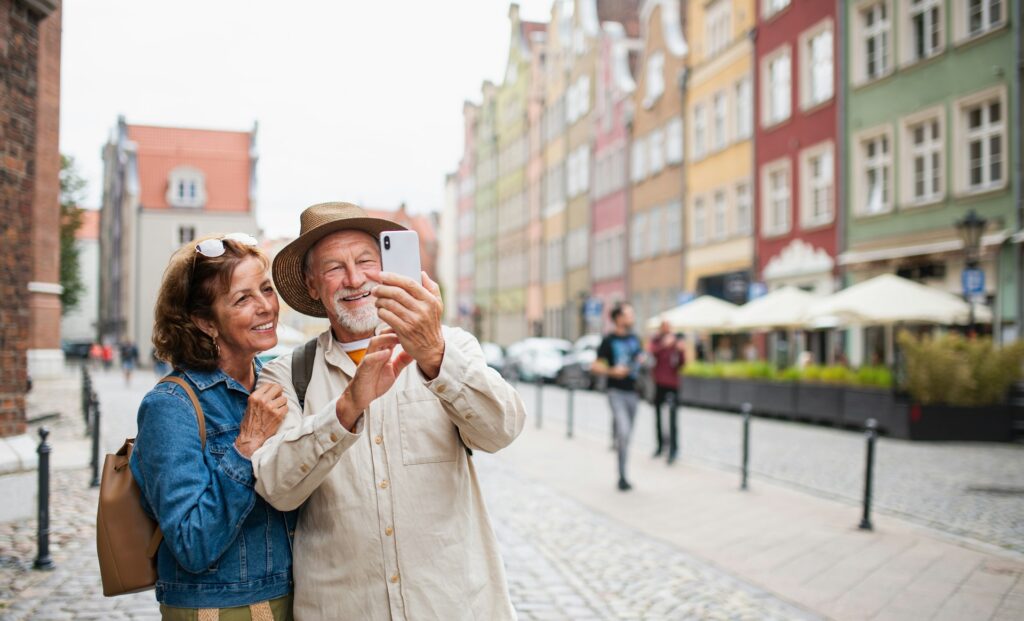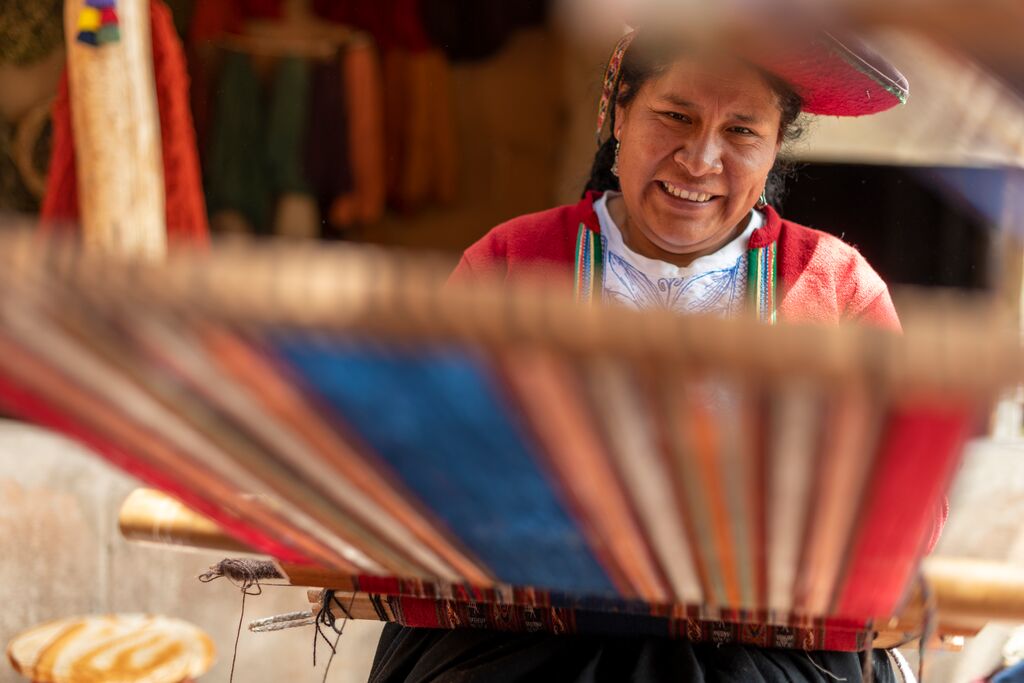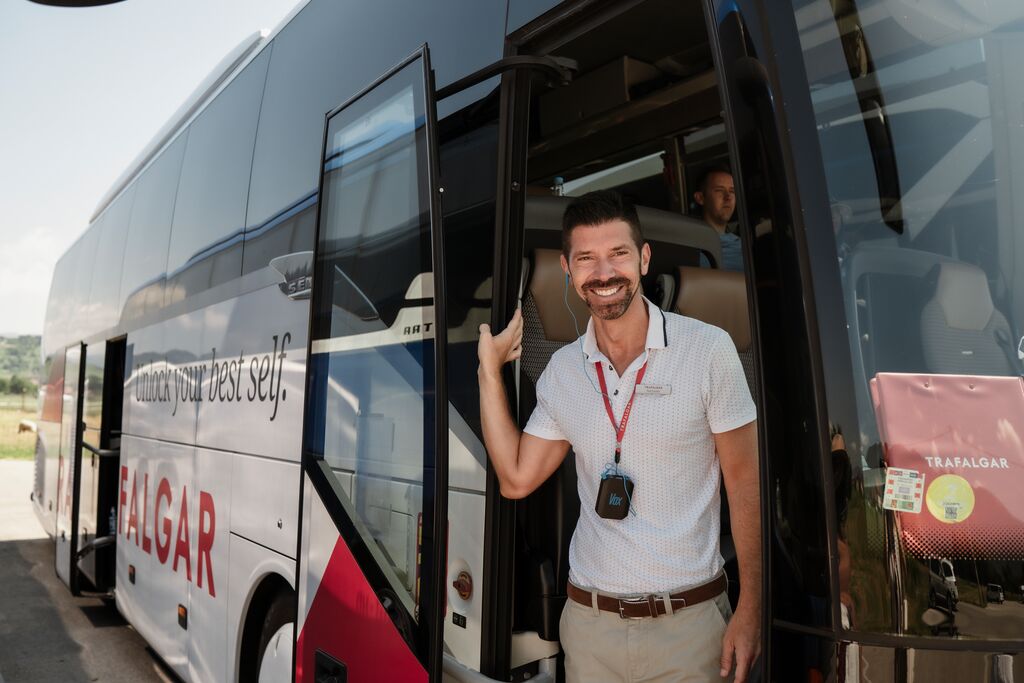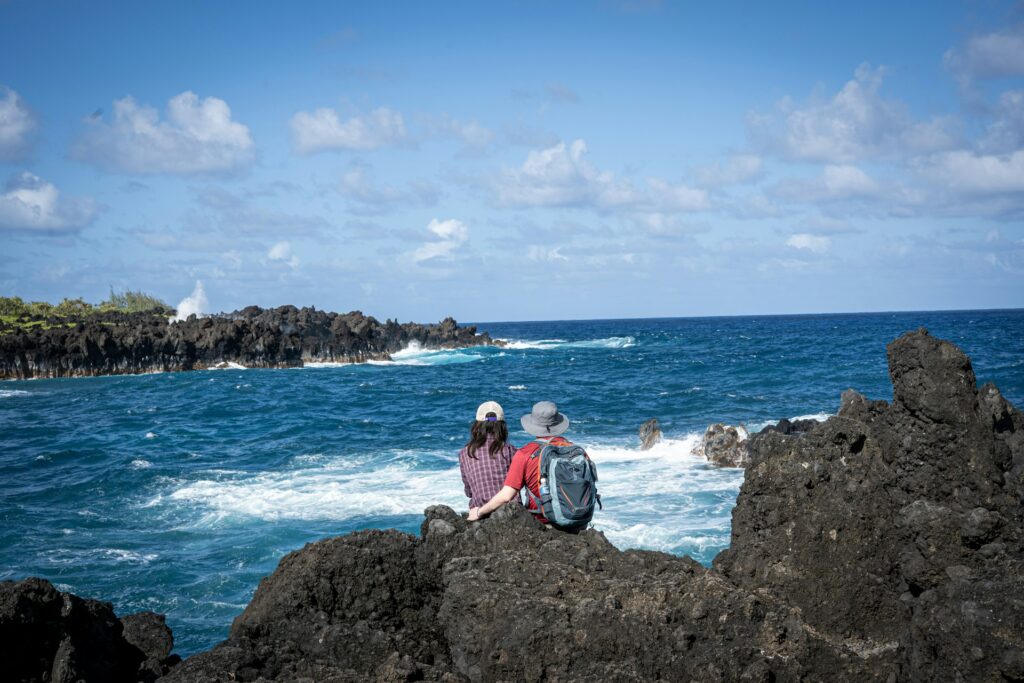Recently updated on October 31st, 2025 at 12:42 pm
Kathryn Anderson is a freelance journalist and the creator of the award-winning site Coffee and Mascara. A travel and wellness expert with a keen eye on what’s next, she explores how technology and cultural shifts — from AI to social media burnout — are reshaping the way we travel.
Artificial Intelligence (AI) seems to be everywhere these days. From the smart speaker that answers your kitchen counter questions to the chatbot helping you with customer service, and even self-driving cars — AI has quietly woven itself into our daily lives.
But what happens when we step away from our routines and head off on vacation? Can AI really transform the way we travel, or is it just another buzzword riding the trend wave? That question is becoming more important than ever as the travel industry races to adopt new technologies.


AI is already transforming the way we travel
While it has recently become more mainstream, AI isn’t new to the travel space. Back in 2023, I wrote a piece about an AI-powered travel assistant that offers personalised advice about destinations. GuideGeek, a WhatsApp-based travel assistant, hadn’t yet gone mainstream, but AI was already making waves in the industry.
It’s safe to say that AI is now transforming nearly every stage of the travel experience—from trip inspiration and itinerary planning, to on-the-ground navigation, and even real-time translations. If you’re struggling with a menu in a foreign language, simply open the Google Translate app on your phone to view the words in your native tongue. Prefer to speak to someone? Tap the microphone to talk to your phone and Apple Translate will transcribe what you said and then translate it into another language. Don’t want to read? Slip on a pair of Ray-Ban Meta AI glasses, they will translate what they hear and speak to you in your preferred language.


Now that apps and smartphones are able to translate conversations as they happen, language barriers are being broken down, giving travellers the confidence to explore places they may not have previously considered. Having travelled throughout China, I can attest to the challenges a language barrier can bring. AI is helping travellers to overcome this roadblock.
1. AI in travel: what the stats tell us
A recent survey confirmed that AI has become a widespread tool among active Internet users; 72% of respondents claimed to use AI at least once. Among those surveyed, 66% used AI to select an accommodation, 60% made a list of restaurants with its help and 58% even assigned AI to search for tickets.
While younger generations are quick to embrace these tools, many travellers still value the irreplaceable human touch that a trusted advisor provides. Whether that trusted source is a Travel Advisor, a travel blogger, or an Influencer, many people still prefer to get their information from an actual person, rather than AI.
Over half of adults aged 54 and up surveyed said they are less inclined to use AI services, with only 54% having interacted with AI and 20% showing no interest in trying. Since AI scours the Internet to collect its information, mistakes can—and often do—occur. AI has no way of knowing whether the information it finds is current or factual, whereas Travel Advisors and bloggers who have recently visited a destination can provide accurate and up-to-date information based on their first-hand experience.


2. Will Travel Advisors become obsolete?
While it has proven beneficial, AI is posing problems for some. A former Travel Advisor turned Hospitality Consultant, Shanon Morris, admitted that “AI has definitely impacted my role.” When clients first use AI for travel research, and then approach her, Morris explains that “consumers trust AI and don’t verify the information, so trying to build trust with clients when your recommendations are different from AI is tricky.”
For those like Morris who work in the travel sector, the challenge is learning how to complement AI-created itineraries rather than compete with them. This is where the magic lies—in combining AI in travel planning with a human element to smooth out the kinks. Tech-savvy Travel Advisors may use AI in the initial research stage to save time, but then review and confirm its findings before adding their own personal experiences. This combination offers the best of both worlds.
AI is becoming the toolset and expectation for modern travel. Those who use it may get more out of their travel, such as less stress and more personalisation, but human values will still matter.


3. Caveats of using AI for planning vacations
Miguel Angel Gongora Meza, founder and director of the worker-owned Evolution Treks Peru in Cusco, told me, “AI has changed the rhythm of work recently.” Many of his clients now expect the lightning-fast replies they get when chatting with AI bots. But for Meza, “work is based on patience and humanity.” He prefers to let his team handle most of the conversations—even if that means a longer wait—because it preserves the authenticity of what they offer. As Meza puts it, AI can “take away the cultural depth and local knowledge that travellers come for.”
It’s easy to see why that tension exists. Our collective attention span has shrunk; we’ve become a society hooked on instant answers. AI chatbots on countless websites have trained us to expect information on demand. But when it comes to travel planning, that expectation can clash with the very experiences many travellers are seeking.


For companies like Evolution Treks Peru, which craft slow, culturally rich adventures, true connection simply can’t be rushed. Meza hopes that travellers craving a deeper, more intentional journey will also value the pause—and be willing to wait a day or two for a response that comes from a real human who knows the land.
4. Asking the source directly
Since we are talking about AI, it seemed fitting to go directly to the source. I asked ChatGPT its take and here is what it said, “Here’s my hot take: AI isn’t just going to tweak the way we plan and experience travel—it’s already reshaping the entire trip lifecycle. But “revolutionise” doesn’t have to mean robots taking over our vacations; it’s more about making travel feel smoother, more personalised, and sometimes even more magical.”
5. How Trafalgar mitigates the need for AI in travel planning
When you book a trip with Trafalgar, you’re not just plugging dates or questions into a system and hoping for the best. You’re talking to real people who know destinations inside out and have spent years curating itineraries that blend iconic sights with authentic, local experiences.
From the first conversation with a member of their booking team (yes, a real person!) to the carefully designed itineraries packed with authentic local interactions, every detail has been shaped by human insight and experience. While AI tools can help with efficiency, they’re a long way from delivering the kind of nuance, cultural depth, and personalized care that Trafalgar weaves into every journey.


6. AI in Travel—the verdict
The future of travel isn’t about AI taking over—it’s about AI taking care so we can travel deeper. It lets our plans flex when real life intervenes, and gives us space to breathe, explore off-beat paths, and treasure unexpected moments. The revolution isn’t robotic; it’s human, powered by smart tools.
Bottom line? AI will revolutionise travel, but the magic isn’t in replacing the human element. It’s in combining the two. It’s about taking the stress off our plates so that we can focus on what actually matters: the serendipity, the culture, the real human connections. And I can get on board with that.


What are your thoughts on the rise of AI within the travel industry? Do you use it, or vow to stay away from it completely? Let us know in the comments below!
